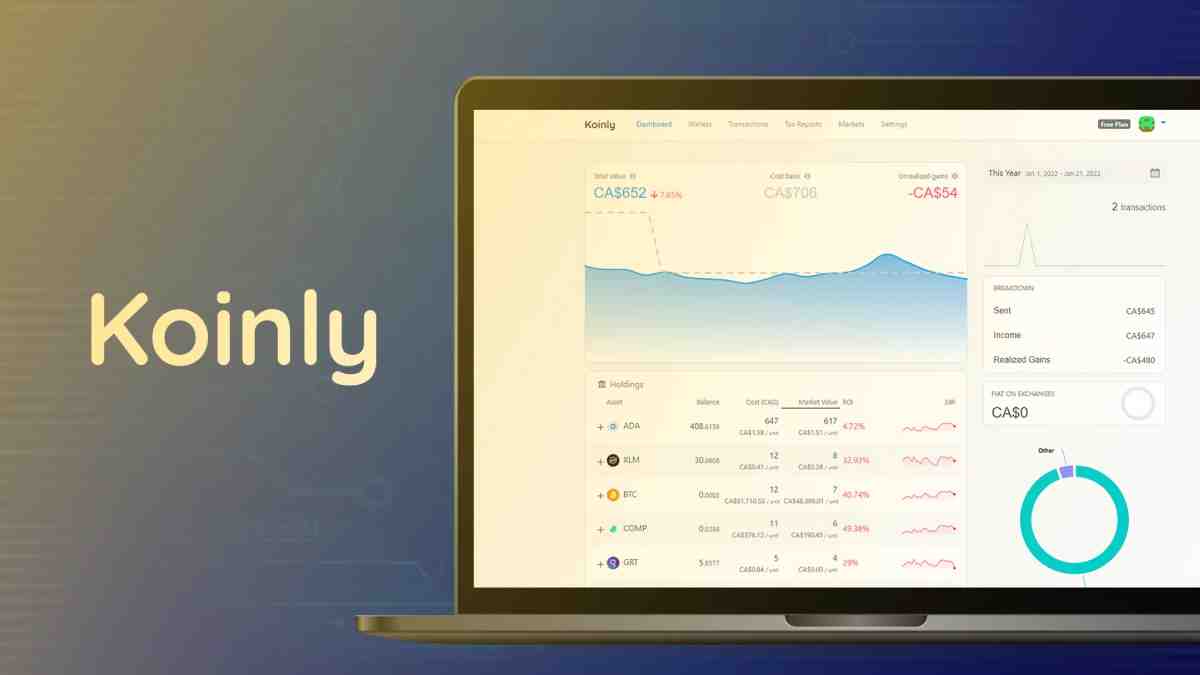
Best Crypto Tax Software for Investors
As cryptocurrencies grow in finance, tax authorities are focusing on unreported gains and income. Investors need to keep careful records and report all taxable events. This can be hard since transactions happen across different wallets, exchanges, and decentralised protocols.
That’s where crypto tax software steps in. These tools make recordkeeping, reporting, and filing easier. They automatically track your transactions and create tax reports that meet compliance standards. In this guide, we’ll highlight the best crypto tax tools in 2025, explain why they matter, and provide expert guidance to help you choose the right one.
Why It Matters
Compliance is Not Optional Anymore
Most countries now treat cryptocurrency as property, subjecting it to capital gains tax. Every investor, from casual holders to high-frequency traders, has to report their activity for each transaction. With regulations tightening, relying on manual tracking is not only inefficient—it’s risky.
Complex Portfolios Require Smarter Tools
As investors spread out into DeFi, NFTS, staking, and global exchanges, tax management gets much tougher. Software that can consolidate and automate these tasks isn’t just helpful—it’s essential.
Audit-Proof Reporting
Tax agencies are now using blockchain forensics to verify tax returns. The only reliable defence is accurate, verifiable reporting. The right crypto tax software makes it easy to provide audit-ready documentation.
Key Benefits of Using Crypto Tax Software

Automated Transaction Tracking
The best crypto tax tools collect transactions from your wallets, exchanges, and DeFi platforms on their own. This eliminates the need for manual entry and significantly reduces errors.
Key integrations typically include:
- Centralised exchanges (Coinbase, Binance, Kraken)
- Wallets (MetaMask, Ledger, Trust Wallet)
- Defi protocols (Uniswap, Aave, Curve)
- NFT marketplaces (OpenSea, Blur)
Simplified Tax Form Generation
These tools help you generate country-specific tax forms such as:
- IRS Form 8949 (U.S.)
- Schedule D (U.S.)
- K4 (Sweden)
- Capital gains reports (UK, Canada, Australia)
Many also work with tax filing platforms like TurboTax. They offer export options for CPAS, too.
Accurate Capital Gains Calculations
Crypto tax tools calculate short- and long-term gains using recognised accounting methods such as:
- FIFO (First In, First Out)
- LIFO (Last In, First Out)
- Specific Identification (where supported)
This helps ensure you’re not overpaying taxes on gains or underreporting and risking penalties.
Multi-Year Reporting and Audit Trails
Top platforms let you create multi-year reports and view complete transaction histories. This is crucial if you are audited or changing accountants.
Additional Expert Tips & Common Mistakes to Avoid
Expert Tips
Choose Software Based on Activity Type
If you’re deep into DeFi or NFTS, not every tax tool will be up to the task. Look for software that supports the platforms and transaction types you use most.
Reconcile Regularly
Don’t wait until April. Sync your accounts monthly and check for mismatches in wallet balances or missing transactions. Staying ahead keeps your records clean and reduces stress.
Backup and Secure Your Data
Store backups of exported reports and logs. Most platforms allow PDF and CSV exports—keep these in secure cloud or offline storage.
Common Mistakes
- Ignoring Gas Fees: Gas fees can reduce your taxable gains. Make sure the software accounts for them correctly.
- Assuming All Transfers Are Taxable: Moving crypto between your own wallets isn’t taxable. But you must mark it correctly to avoid confusion.
- Not Including DeFi/NFT Activity: Many tools don’t fully support DeFi and NFTS. If you’re active in these spaces, double-check every imported transaction.
- Choosing Free Versions with Limits: Most free plans cap transaction imports. You might miss data unless you upgrade to a paid version.
Advanced Insights and Expert Recommendations
Best Crypto Tax Software in 2025

1. Koinly
Best for: Most investors, including those with DeFi/NFT exposure
- Easy-to-use interface
- Supports 300+ wallets and exchanges
- DeFi, NFT, margin, and futures support
- Country-specific reports
Pricing: Free up to 10,000 transactions; paid plans from $49/year
2. CoinTracker
Best for: U.S. investors and mobile users
- Clean dashboard with portfolio tracking
- Strong mobile app
- Syncs with TurboTax and H&R Block
- Limited DeFi/NFT support
Pricing: Free up to 25 transactions; plans from $59/year
3. Accointing
Best for: Beginners
- Streamlined interface
- In-app crypto tax calculator
- Strong exchange integrations
- Web and mobile platform
Pricing: Free for 25 transactions; paid plans start at $79/year
4. TokenTax
Best for: Advanced users and professional traders
- Full-service plans with CPA support
- Handles staking, airdrops, and LPS
- Custom CSV imports
- White-glove tax filing service
Pricing: Starts at $65/year; Full-service plans from $199/year
5. ZenLedger
Best for: U.S.-based investors with complex tax needs
- Supports DeFi, staking, NFTS
- TurboTax integration
- CPA tax filing services are available
- Real-time portfolio tracking
Pricing: Free for limited use; plans from $49/year
Considerations When Choosing Software
Integration Breadth
Make sure your exchange and wallet of choice are supported. Some tools have better coverage of DEXS or non-EVM chains than others.
Customer Support
When taxes are on the line, responsive support matters. Look for platforms with live chat or email support—especially if you’re not tech-savvy.
Data Privacy
Your financial data is sensitive. Opt for platforms with strong encryption and two-factor authentication. Avoid any software that doesn’t clearly outline how your data is stored and used.
The right crypto tax software can help you:
- Stay compliant
- Avoid costly mistakes
- Maximise your deductions
- Confidently file taxes without stress
Make Crypto Tax Filing Effortless
In 2025, crypto tax filing is no longer a niche concern. Investors must adapt. Stricter rules, more checks, and wider use mean old tracking methods won’t cut it anymore.
Koinly, CoinTracker, and TokenTax provide solutions for all investors. Whether you invest casually or trade full-time, these tools fit different needs. The key is to start early, stay organised, and choose the platform that best matches your trading style and needs.
Crypto taxes won’t be getting simpler. But with the right tools in place, your filing process can be.
